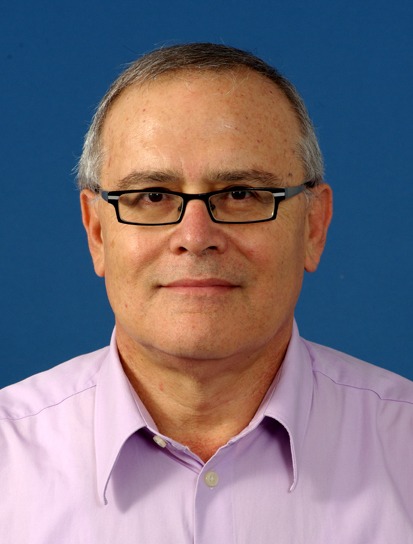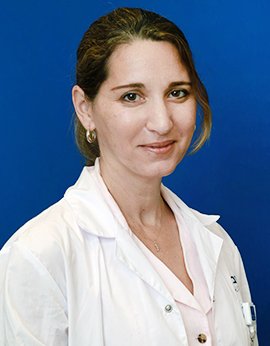Healthcare with Confidence
What Is Eye Melanoma?
Ocular melanoma, also known as uveal melanoma, is a rare but serious cancer that develops in the pigment cells of the eye. It most commonly affects the choroid, but can also involve the iris or ciliary body. Though rare, it is the most common primary intraocular tumor in adults.
Eye melanoma requires prompt, expert evaluation and treatment to preserve vision and protect life. Israel is a global leader in melanoma research and treatment, including rare forms such as ocular melanoma.
Eye melanoma (ocular, uveal melanoma, melanoma of conjunctiva, eyelid melanoma) is a cancer that develops from melanocytes, cells that produce melanin pigment which is responsible for the color of the skin and eyes.
New approach of immunotherapy medicines allows our oncologists to increase significantly treatment results and improve quality of life of our patients.
Why Choose Israel for Eye Melanoma Treatment?
Israel is recognized internationally for its advanced oncology care, personalized treatment protocols, and access to the latest therapies, including clinical trials. Patients with ocular melanoma benefit from the close collaboration between ocular oncologists, medical oncologists, radiation therapists, and surgeons—working together in Israel’s leading hospitals.
Immunotherapy protocols adapted to ocular melanoma
- Precision radiotherapy (including proton therapy and stereotactic radiation)
- Genetic profiling and mutation testing (e.g., GNAQ, GNA11, BAP1)
- Personalized therapy based on drug sensitivity testing
- New clinical trials combining PD-1 inhibitors with novel agents
Consult With Israel’s Leading Melanoma Experts
You can now receive a remote consultation at any stage of the disease from Israel’s top specialists in melanoma and immunotherapy:

Prof. Jacob Schachter – Head of the Ella Lamelbaum Institute for Melanoma and Immunooncology at Sheba Academic Medical Center, Chaim Sheba Hospital, Israel. Deputy Director of Oncology Department of Chaim Sheba Hospital.
Ask Doctor Get Consultation Online
What to Expect During a Consultation
During your expert consultation, the following topics are addressed:
- Interpretation of PET-CT, MRI, and biopsy reports
- Treatment options based on:
- Tumor location and size
- Genetic mutation status
- Disease stage and spread (e.g., liver metastases)
- Personalized therapy selection, including:
- Checkpoint inhibitors (e.g., pembrolizumab / Keytruda)
- Targeted therapy if genetic alterations are present
- Radiation therapy (proton beam, plaque brachytherapy)
- Brachytherapy (local irradiation). This method is the most common. In the damaged layer of the eye plate with radioactive material is placed and it remains there for a few days (in accordance with the calculation determined individually for each patient). Plate itself is a source of radiation, and radiation is only increased following ocular tissues. Removing the plate and results evaluation is performed under local anesthesia.
- Enucleation (eye removal). In cases where treatment of melanoma not amenable to radiotherapy (usually at large tumors), physicians may recommend a total eye removal. Previously, this method has been most widely used, but in recent years in Israel only in a minority of cases the tumor removed by this method. After removal of the necessary reconstruction of the eye (ocular prosthesis implantation).
- External exposure. Unlike local emission radiation from an external source may be projected on the distant tissue. Standard external radiation therapy used to treat other types of cancer, and it is not an effective method for the treatment of uveal melanoma.
- Stereotactic radiosurgery. This technique began to be used in some cases for the treatment of uveal melanoma is only in recent years. This radiation using special equipment extends from several directions.
- Surgical resection of the tumor. In those cases where melanoma has a limited size, particularly when it is in front of the eye can be resection by establishing “window” in the eye. This operation is performed only for the removal of tumors of small diameter.
- Heat treatment (transpupillary thermotherapy). During this procedure the tumor is heated by a special laser beam which destroys the portion of cancer cells. In recent years this method of treatment is used as an adjunct to radiation therapy.
- Because uveal melanoma can spread to other parts of the body, patients treated must undergo periodic liver function tests – imaging scan (ultrasound and/or CT) of the liver and liver function tests (blood tests). These tests are usually necessary to carry out once every six months. Other possible spread of melanoma is to lungs and bones, but the spread of tumors in these organs are usually occurs only after finding a cancerous tumor in the liver. The most of cases of uveal melanoma are one-sided.
- Eligibility for clinical trials
- Opportunities for treatment in Israel or in your home country
After the consultation:
You will receive a written medical opinion with a detailed treatment recommendation — whether you decide to undergo care in Israel or continue treatment at home.
Eye Melanoma – Prognosis and Treatment Goals
Key Factors Influencing Treatment:
- Tumor size and location
- Spread to liver or other organs (metastasis)
- Mutation status (BAP1, GNAQ, etc.)
- Patient performance status
Liver metastases, when present, are often a poor prognostic factor, but Israel offers multidisciplinary approaches that combine local liver therapies with systemic immunotherapy.
Israel’s specialists closely monitor LDH levels, tumor burden, and albumin to assess response and adjust treatment accordingly.
Advances in Eye Melanoma Treatment
Immunotherapy
- Although uveal melanoma responds less to PD-1 inhibitors compared to cutaneous melanoma, combination immunotherapy protocols (e.g., nivolumab + ipilimumab) have shown promise.
- Ongoing trials are testing bispecific antibodies and targeted immuno-oncology agents adapted for ocular melanoma.
Personalized Oncology
- Drug sensitivity testing helps tailor treatment to the patient’s tumor biology.
- New Israeli-developed molecular platforms allow for custom treatment planning.
Clinical Trials
Patients may be eligible for innovative therapies, including:
- Autologous TIL therapy
- Oncolytic virus therapy
- mRNA-based immunotherapy candidates
Planning Treatment in Israel
Before traveling to Israel, you will receive:
- A personalized diagnostic and treatment plan
- Scheduled appointment times
- Clear logistics for every step — from imaging to surgery or immunotherapy
- While in Israel, you’ll be supported with:
- English-speaking medical staff
- Written reports for your home physician
- Coordinated follow-up care
Get Started Today
Eye melanoma is complex, but Israeli specialists offer hope, precision, and world-class care. Whether you are newly diagnosed or have advanced disease, a consultation with our melanoma experts may help you explore better, personalized treatment options.




 Dr. Zipel Dov – Head of the Oncological Surgery unit, Sheba Medical Center Tel Hashomer.
Dr. Zipel Dov – Head of the Oncological Surgery unit, Sheba Medical Center Tel Hashomer.
